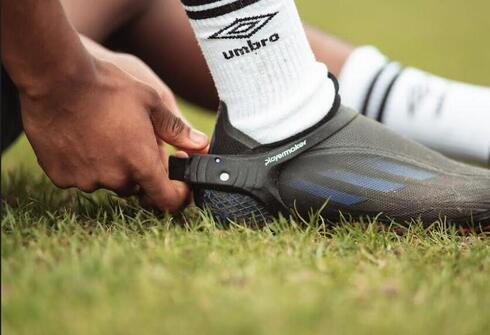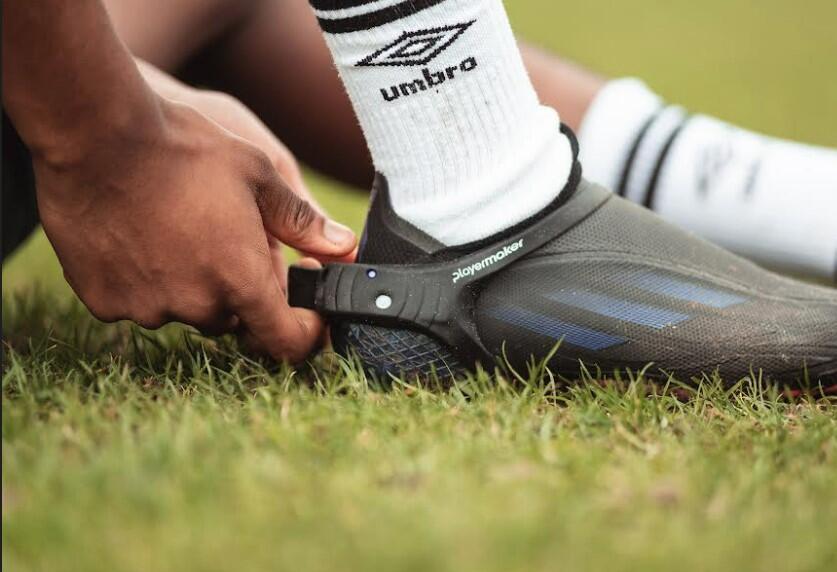
Israel’s Playermaker approved by FIFA to track player performance in official games
The company has been awarded the Electronic Performance and Tracking Systems (EPTS) FIFA Quality Programme certification
Playermaker, an Israeli sports-tech company that develops small devices to attach to and track soccer players’ performances on the pitch, has been awarded the Electronic Performance and Tracking Systems (EPTS) FIFA Quality Programme certification. The certification was granted by the International Football Association Board (IFAB) and means that the company will be one of the wearable devices allowed on the feet of soccer players to help track, analyze, and improve their performance during official FIFA football matches.
While wearable tracking devices are commonly worn by players on the upper body to measure data points like GPS, lower limb wearable systems were only approved this year. It means teams will be able to track physical performance data such as time on the ball, technical balance, kicking velocities, speed, distance, acceleration, and change of direction. Players and coaches can then quickly learn and adapt their strategies via an app.
“Gaining the certificate for our footwear technology is a result of a three-year process, constructed by FIFA to make sure we are meeting the highest standards of quality and safety for the game,” said Guy Aharon, CEO and Co-Founder of Playermaker speaking to CTech. “The change, in FIFA’s words, is that more players of many more levels have access to clear feedback on their performance and path to improve, engage with the game, and be healthier by using Playermaker. Now more players and team can understand their game and how they can win more.”
The FIFA Quality Programme for EPTS devices was established in 2017 to make sure that devices don’t threaten the safety of players on the pitch. The Playermaker devices were developed in 2019 and Aharon believes basketball will be its next large sport segment.
Playermaker already has partnerships with more than 200 soccer clubs, academies, teams, and ambassadors, including Man City, Fulham, Norwich City, Benfica, Bodø Glimt, LA Galaxy, and more. Last year, the Israeli under-16 girls' team used Playermaker during the Maccabiah Games, commonly referred to as “The Jewish Olympics”. Speaking to CTech last year, Aharon confirmed that he could count on his fingers how many devices had ever broken, signaling their durability.
“Sport is being performed and ‘consumed’ by a very large audience,” he added. “It makes sense that AI will simplify the experience and make it available for more players and fans. We brought AI to the footwear of players, allowing a seamless tracking and reach output that answers the questions of players on how they can improve. Wearables are natural ground for AI, not just tons of data and results for myself and my body, but what it means to me and what I should do with it,” he concluded.














